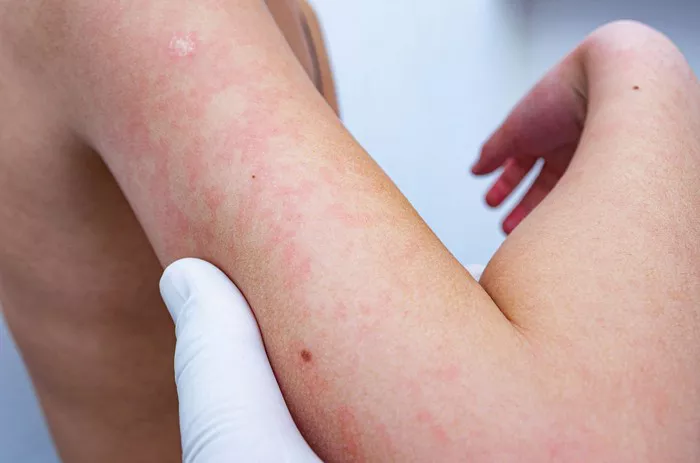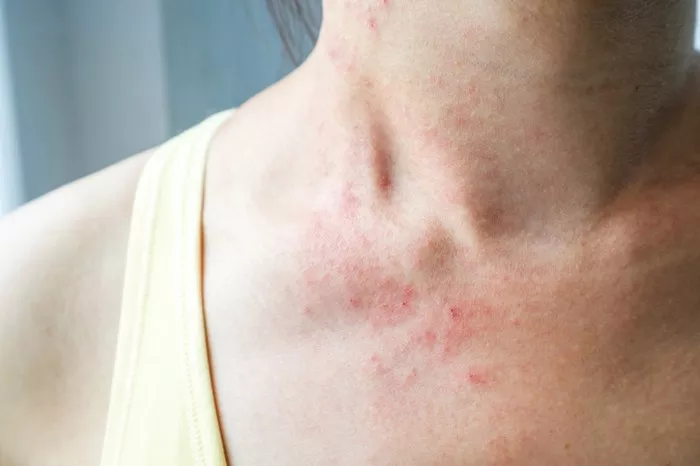Eczema, a chronic inflammatory skin condition, affects millions of individuals worldwide. Among its myriad of symptoms, the relentless itch accompanying eczema can significantly diminish one’s quality of life. While medical treatments exist, many individuals seek relief through home remedies, often preferring natural solutions to manage their symptoms. In this article, we delve into the world of home remedies for itchy eczema, exploring their effectiveness and offering insights into integrating them into a comprehensive eczema management plan.
Understanding Eczema and Its Itch
Before delving into home remedies, it’s crucial to understand the nature of eczema and why it triggers such intense itching. Eczema, also known as atopic dermatitis, is characterized by inflamed, itchy skin patches. This condition arises from a combination of genetic and environmental factors, leading to a compromised skin barrier and heightened immune response.
The itch associated with eczema is multifactorial, stemming from a mix of inflammation, dryness, and nerve stimulation. Scratching, while providing momentary relief, exacerbates the condition, leading to further inflammation and potential skin damage. Managing this itch is paramount to alleviate discomfort and prevent worsening of the condition.
Home Remedies for Itchy Eczema
1. Moisturize Regularly: Keeping the skin adequately moisturized is crucial in managing eczema-related itchiness. Opt for fragrance-free, hypoallergenic moisturizers or emollients that help repair the skin barrier. Apply moisturizer generously after bathing to lock in moisture.
2. Oatmeal Baths: Oatmeal has soothing properties that can provide relief from itching and inflammation. Adding colloidal oatmeal to lukewarm bathwater and soaking for 15-20 minutes can help alleviate eczema symptoms. Pat the skin dry gently afterward and apply moisturizer.
3. Cold Compresses: Cold compresses or ice packs can help numb the itching sensation and reduce inflammation. Wrap ice packs in a clean cloth and apply them to the itchy areas for short durations to avoid skin damage.
4. Coconut Oil: Coconut oil possesses anti-inflammatory and moisturizing properties, making it a popular choice for eczema relief. Apply virgin coconut oil to the affected areas regularly to soothe itching and reduce inflammation.
5. Aloe Vera Gel: Aloe vera gel, obtained from the leaves of the aloe vera plant, has cooling and anti-inflammatory properties. Applying pure aloe vera gel to eczema patches can provide relief from itching and promote healing.
6. Turmeric Paste: Turmeric contains curcumin, a compound known for its anti-inflammatory and antioxidant properties. Mixing turmeric powder with water to form a paste and applying it to eczema patches can help reduce itching and inflammation.
7. Honey: Honey has antimicrobial and anti-inflammatory properties, making it beneficial for eczema-prone skin. Apply a thin layer of raw honey to the affected areas and leave it on for about 20 minutes before rinsing off with lukewarm water.
8. Probiotics: Probiotics, either in supplement form or through probiotic-rich foods like yogurt, kimchi, and sauerkraut, may help modulate the immune system and improve gut health. Some studies suggest that probiotics could potentially reduce eczema severity and itching.
9. Sunflower Seed Oil: Sunflower seed oil is rich in linoleic acid, which helps maintain the skin barrier and reduce inflammation. Applying sunflower seed oil to eczema patches can help alleviate itching and promote skin hydration.
10. Evening Primrose Oil: Evening primrose oil contains gamma-linolenic acid, which has anti-inflammatory properties. Taking evening primrose oil supplements or applying it topically may help reduce eczema-related itching and inflammation.
Integrating Home Remedies into Eczema Management
While home remedies can offer relief from itchy eczema, they are most effective when used in conjunction with medical treatments and lifestyle modifications. Here are some tips for integrating home remedies into a comprehensive eczema management plan:
1. Consult with a Dermatologist: Before trying any home remedy, it’s essential to consult with a dermatologist or healthcare provider, especially if you have severe or persistent eczema. They can provide personalized recommendations and ensure that home remedies complement medical treatments.
2. Maintain Good Skincare Practices: In addition to using home remedies, adhere to a gentle skincare routine that includes mild cleansers and moisturizers. Avoid harsh soaps, fragrances, and other irritants that can exacerbate eczema symptoms.
3. Identify Triggers: Keep track of factors that exacerbate your eczema symptoms, such as certain foods, environmental allergens, or stress. Avoiding or minimizing exposure to these triggers can help prevent flare-ups and reduce itching.
4. Stay Hydrated: Drink plenty of water to maintain skin hydration from within. Hydrated skin is less prone to itching and irritation, so aim to drink at least eight glasses of water per day.
5. Practice Stress Management: Stress can exacerbate eczema symptoms, including itching. Incorporate stress-reduction techniques such as mindfulness meditation, yoga, or deep breathing exercises into your daily routine to promote overall well-being.
6. Monitor Progress: Keep track of how your skin responds to different home remedies and adjust your approach accordingly. What works for one individual may not work for another, so it’s essential to find the right combination of remedies that provide optimal relief.
Conclusion
While eczema can be a challenging condition to manage, incorporating home remedies into your eczema management plan can provide additional relief from itchy symptoms. From moisturizing regularly to trying natural remedies like oatmeal baths and aloe vera gel, there are various options available to soothe irritated skin. However, it’s essential to approach home remedies with caution, consulting with a healthcare provider and practicing good skincare habits to ensure their effectiveness and safety. By combining home remedies with medical treatments and lifestyle modifications, individuals can take proactive steps towards managing their eczema and improving their overall quality of life.

























